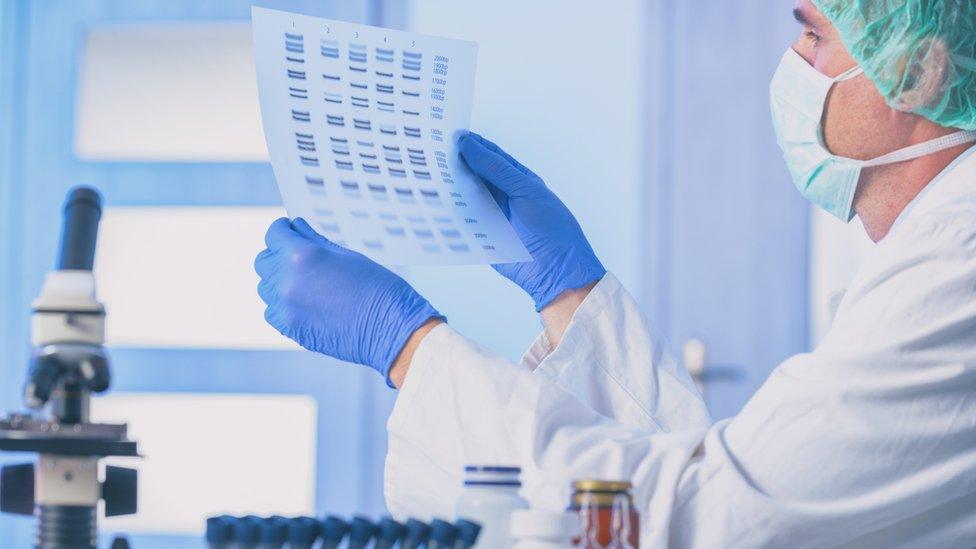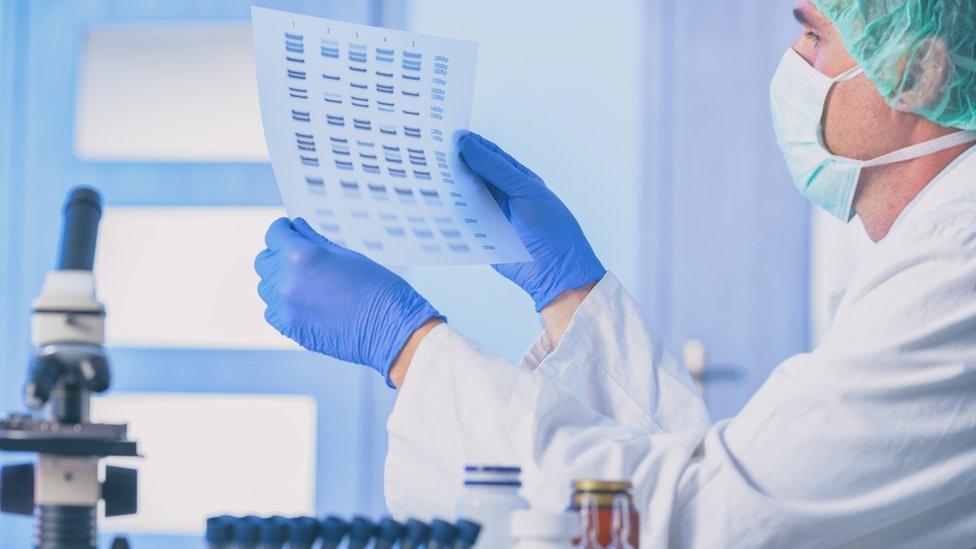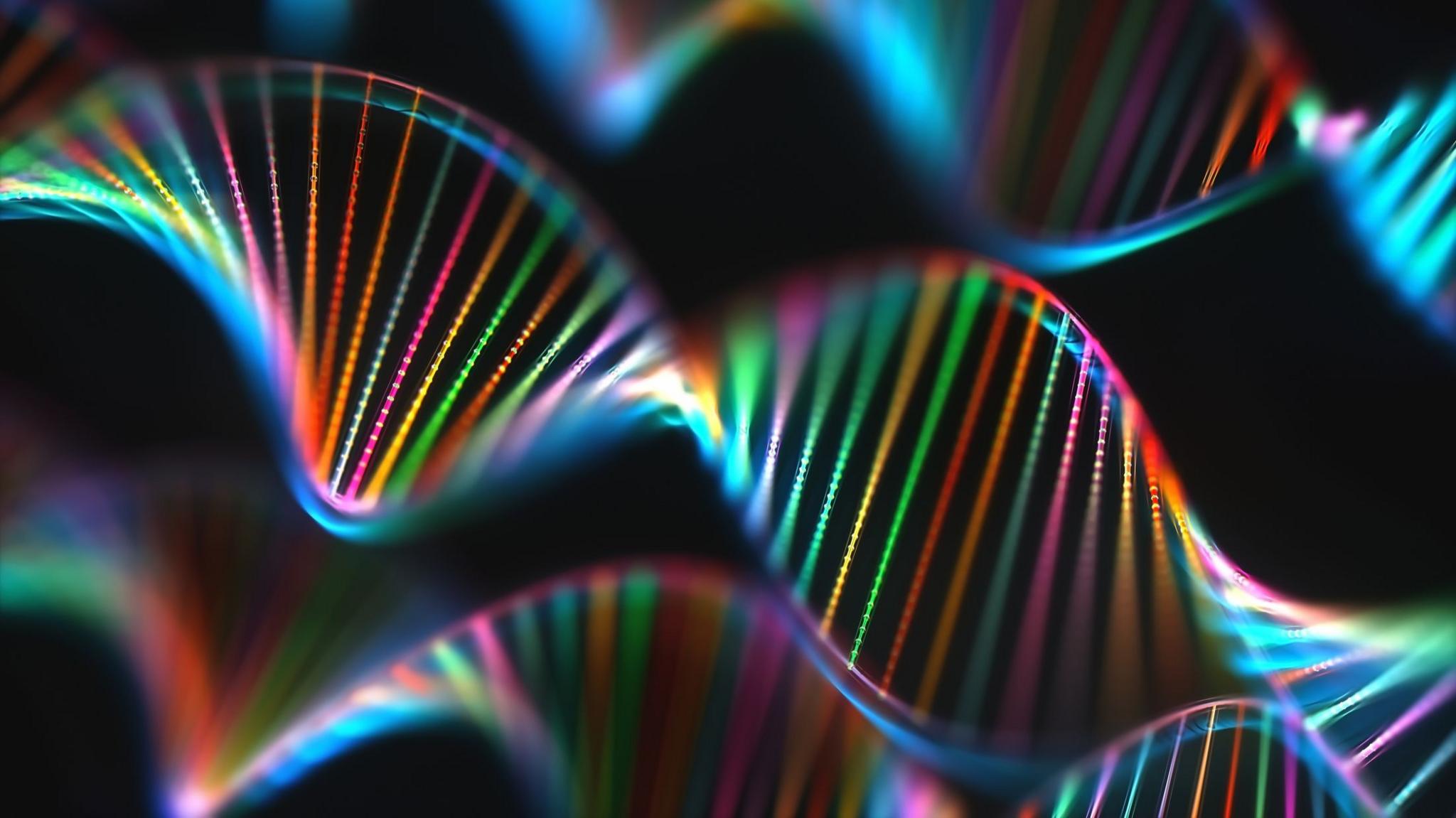Coronavirus: Scientists to map hospital spread
- Published

Scientists are to map the spread of Covid in over 15 UK hospitals, to see how it can defeat even the best infection-control defences.
The work, which has been given urgent status by government, will use genetic material to track how the virus moves between staff, patients and wards.
It could help break more chains of transmission.
Hospitals already use tried and tested methods to minimise spread, including separating Covid patients from others.
Genetic make-up
The study, led by scientists at University College London, will evaluate if rapid viral genomic sequencing data can help locate and reduce the spread of Covid-19 within hospitals.
That means taking lots of nose and throat swabs from patients and hospital staff and looking at the genetic make-up of any coronavirus found.
Virus genomes constantly alter or mutate, changing a tiny bit at a time as they divide and spread by infecting more people.
And these changes can be exploited to track the spread of the virus.
Scientists can tell from these fingerprints whether infections from two different people are identical, meaning one of the individuals transmitted it to the other.
If the fingerprints are different, it rules this out.

TESTING: How do I get a virus test?
SYMPTOMS: Is it a cold, flu or coronavirus?
LOOK-UP TOOL: How many cases in your area?
YOUR QUESTIONS: We answer your queries
THE R NUMBER: What it means and why it matters
TREATMENT: How close are we to helping people?

Prof Judith Breuer, who is leading the work, said: "By sequencing Covid-19 viruses rapidly, we hope to establish how hospital staff and patients became infected.
"This will allow hospitals to put effective measures in place faster, to try to interrupt onward transmission of the virus and reduce the number and size of outbreaks."
That might include more regular deep cleans, rechecking the effectiveness of personal protective equipment and moving other vulnerable patients out of the hospital to another setting, she said.
Many of the small genetic changes will have no significant effect on the severity of the disease the virus causes or how we should fight it.
So far, coronavirus has not had mutations that might make any future vaccine for it ineffective.
But experts say it is important to keep a close check on it just in case.

LIVING WITH BULIMIA: Freddie Flintoff goes on a personal journey

- Published13 May 2020

- Published14 April 2020

- Published9 March 2020